Στο αγγλόφωνο διεθνές συνέδριο «Οντολογία και Ιστορία» θα εξετασθεί η σημασία του διπόλου αυτού για την φιλοσοφία και την θεολογία—στην οποία το ερώτημα αφορά, ουσιαστικά, στην εσχατολογία.
Στους προσκεκλημένους ομιλητές συμπεριλαμβάνονται: ο σεβ. μητροπολίτης Περγάμου Ιωάννης (Ζηζιούλας), ο ομότιμος καθηγητής φιλοσοφίας κ. Χρήστος Γιανναράς, ο πανοσ. καθηγητής φιλοσοφίας π. Παντελεήμων Μανουσάκης και ο καθηγητής συστηματικής θεολογίας Alan J. Torrance.
Το συνέδριο θα λάβει χώρα από τις 29 έως τις 31 Μαΐου 2015 στο Ευρωπαϊκό Πολιτιστικό Κέντρο Δελφών και διοργανώνεται από τον δρ. Σωτήρη Μητραλέξη και τον κ. Andrew Kaethler.
Μέχρι τις 15 Φεβρουαρίου υφίσταται η δυνατότητα πρότασης αγγλόφωνης επιστημονικής ανακοίνωσης διαρκείας 20 λεπτών για το συνέδριο, ενώ το κόστος της ατομικής εγγραφής καλύπτει, μεταξύ άλλων, την διαμονή στους Δελφούς για τις 29-31/5. Περισσότερες πληροφορίες θα βρείτε στην ιστοσελίδα του συνεδρίου εδώ.
Ontology and History: A Challenging and Auspicious Dialogue for Philosophy and Theology
International Conference at the European Cultural Centre of Delphi
29-31 May 2015
This conference will attempt to explore the relationship between ontology and history in the context of both philosophical enquiry and Christian theology. Ontology is the study of being qua being, a field that is typically viewed as distinguishable from––if not also antithetical to––history. However, while the study of being (insofar as it exists) and history may seem unrelated, there is either an explicit or implicit interaction between the two in a number of philosophical traditions; when not explicitly articulated, this implicit interaction emerges as a philosophical problem. And while this is particularly true for various forms of philosophical idealism (e.g. German idealism) and the historicisation of idealism, it emerges as a core problem in the context of Christian theology and its eschatological promise. If the true state of being and beings resides in an eschatological future, not in the present or a distant past (as masterfully expounded by Maximus the Confessor), and if this true state of being and beings is yet to be witnessed, then temporality in general and history in particular become a vital part of ontology proper. This bears immense implications for the philosophical enquiry into ecclesial witness.
Apart from this, a reoccurring challenge within Christianity concerns how we are to make past events present. Rudolf Bultmann tried to make sense of this by elevating word over event. In so doing he formulated an ‘existentialised’ eschatology in which the focus is on the immediate. In current biblical studies there is strong emphasis on making sense of the Resurrection through history, and history is given priority over confession. As a result the ecumenical creeds are denigrated and metaphysical clarification risks being perceived as anti-biblical. In both Catholicism and Orthodoxy there are various construals of anamnesis in which the historical event is made present as a kingdom event through the liturgical experience of the Eucharist. In line with the desire to understand the relationship of the ‘once’ and the ‘always’, there is the challenge of making sense of the particular and the universal. Karl Rahner conflates them: the particular is the universal. Or stepping back in time with Origen, there is the temptation to universalise the particular with salvation. How best can one reconcile the continuity of salvation history and the radical (interruptive) newness of Christ? Political theology, which grew out of a particular account of eschatology, raises the joint concern of how our social histories are legitimated by moral and theological insights about the nature and destiny of the human person. Clearly, the relationship between ontology and history has immense wide-ranging philosophical and theological implications.





















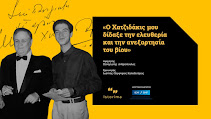



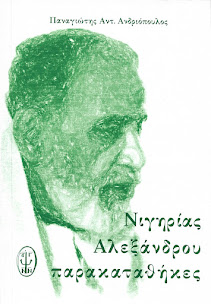


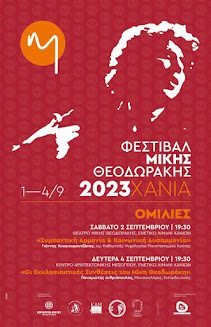
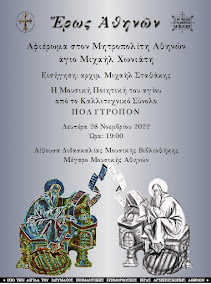

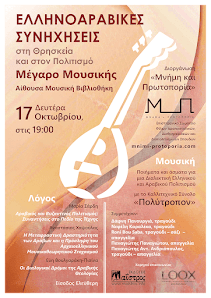



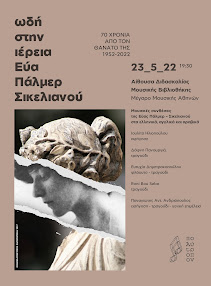





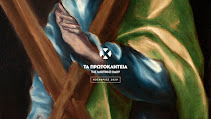


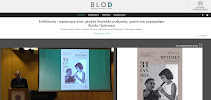
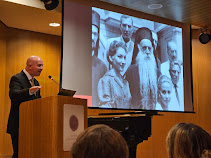
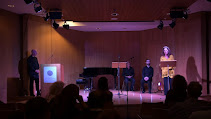




























1 σχόλιο:
Αυτές είναι σπάνιες ευκαιρίες για φιλοσοφικές καταβυθίσεις!
Να ευχηθούμε επιτυχία στο συνέδριο και σύντομα οι εισηγήσεις των εκλεκτών ομιλητών μας να αναρτηθούν σε κάποιο ιστολόγιο για να τις ακούσουμε κι εμείς!
Αγαπητέ Παναγιώτη, περιμένουμε κι από το δικό σου blog!
ΔΙΟΓΕΝΗΣ***Ε.Μ.
Δημοσίευση σχολίου